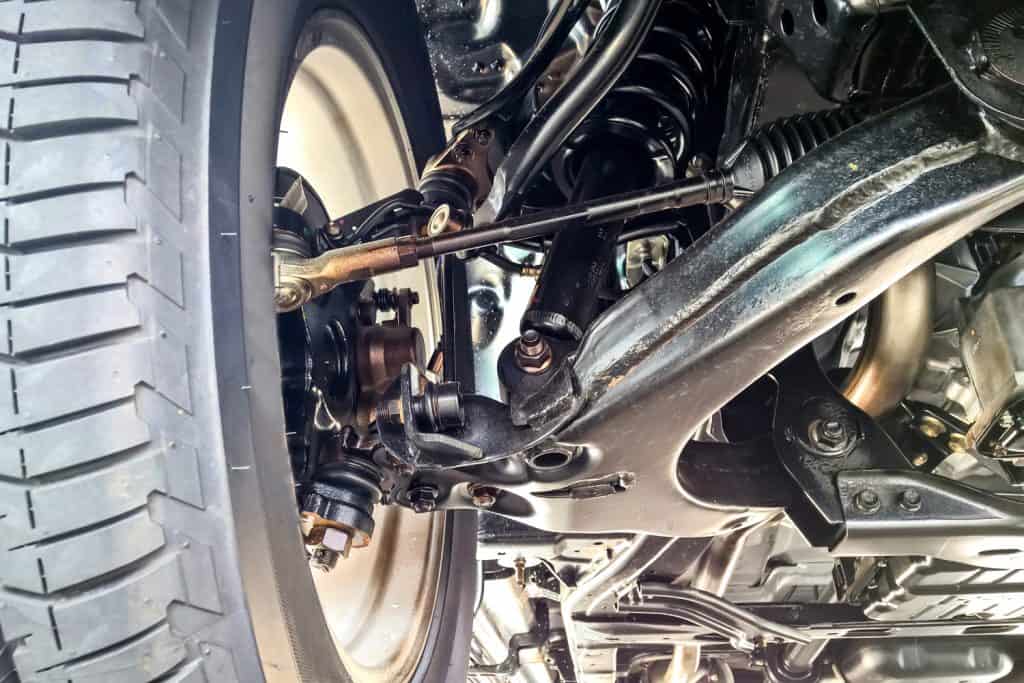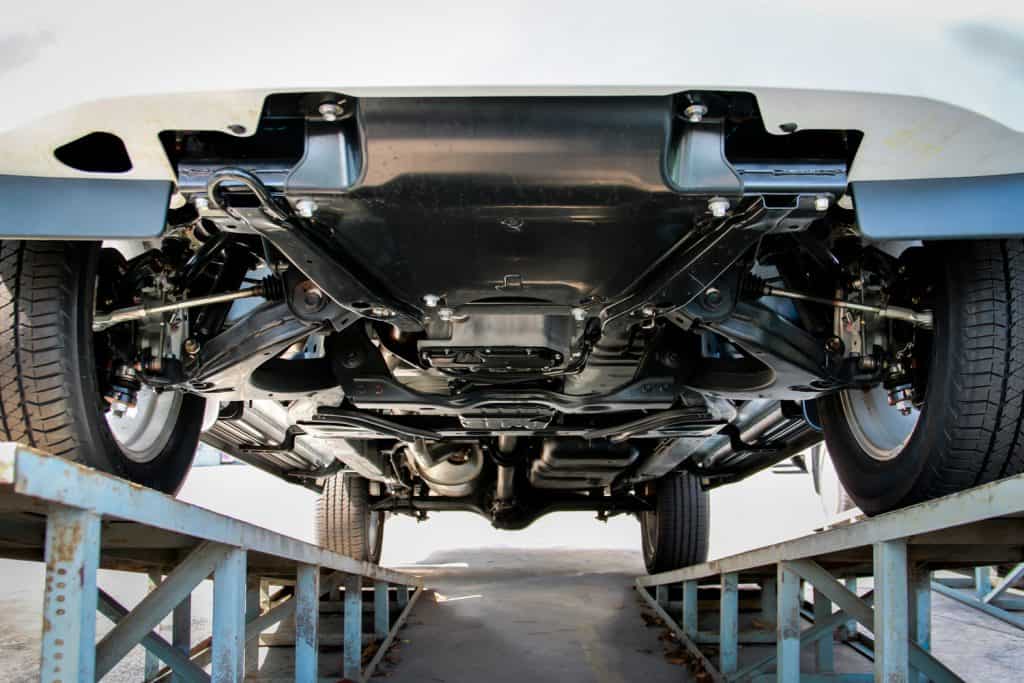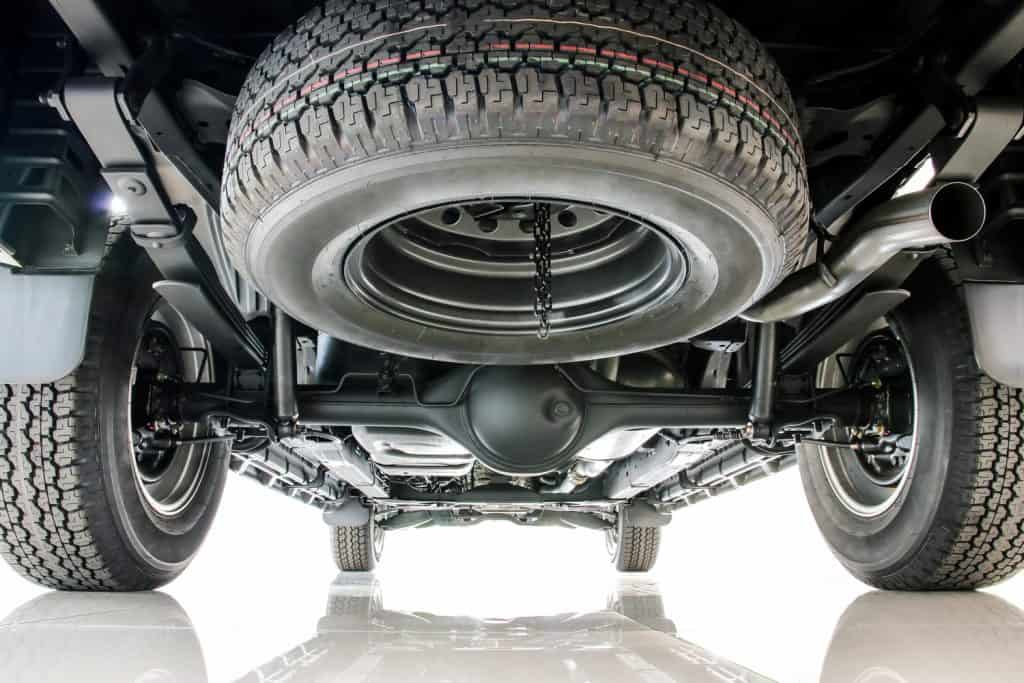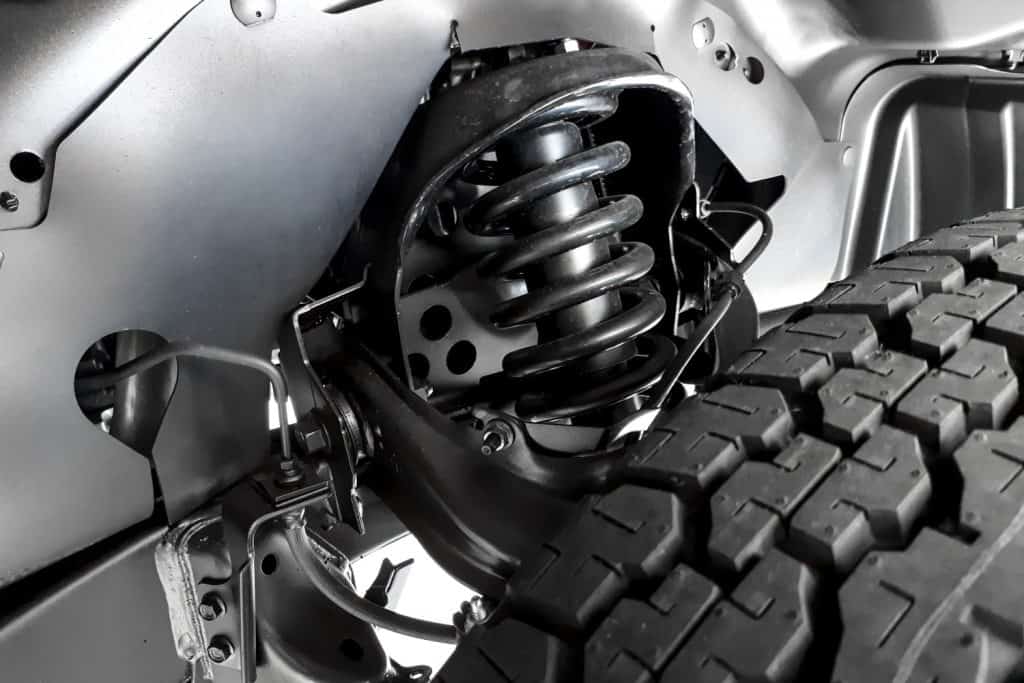As we know, pickup trucks are one, if not the most abused vehicle out there. Their shocks experience probably the most beating out of all car shocks, especially if the pickup is used as a work truck. In this article, we have asked the experts how long pickup truck shocks last? This is what we found out.
The condition of your truck's shocks will heavily depend on their usage. Under regular use, you may expect anywhere between 75,000 miles to 90,000 miles, maybe even longer if the truck barely carries heavy cargo and is always driven on pavement. If it is under heavy usage, it may reach you anywhere between 40,000 miles to 50,000 miles depending on the brand, but these figures are mostly estimations.
Are you interested to learn more about truck shocks? Continue reading as we discuss other related questions like shock replacement, cost of new shocks, the difference between shocks and struts, etc. We will also be suggesting some excellent and informative topics at the end of this article. So what are you waiting for? Go on and finish reading.

How long can your pickup truck suspension last?

Like any other thing, truck shock systems will depend on how they are used. The projected data given above may be different from truck to truck. Logically, if you use your truck for daily heavy work, its parts [not just its suspension] will have a shorter lifespan than those that don't.
Your type of shock will also play a role in how it will last. Stock suspension shocks aren't always the best, so they will last longer if you upgrade or customize your suspension system to take more beating.
Another factor that will affect how long your shocks will last is their towing and payload rating. If you are constantly hauling near the rated limits of your truck, chances are it will easily wear down faster than projected.
Believe it or not, driving habits can also affect the lifespan of your shocks. If you are constantly slamming your brakes, you can damage your suspension. This is because of the sudden forward force experienced by your shocks when you brake suddenly, which may cause its parts to disengage, be out of place, etc.
Rough roads are particularly dangerous. Huge potholes that are unnoticed can damage your suspension system, especially if you are cruising at freeway speeds.
Maintenance is something that should not be taken for granted. If you have air suspensions, they should be constantly checked if there is enough air on your suspension fork.
If you have leaf spring shocks, regular inspection should be done, like assuring bolts are in place. By having routine maintenance, you can easily identify if there are parts that should be fixed or replaced. This will also help in the overall life expectancy of your suspension.
Are struts the same as shocks?
Your car's shock and struts are two components of your suspension system that are often paired together. These are two parts with two different functions.
Your shocks are only part of your whole suspension system. They are the ones that you immediately see, like your air suspension and leaf springs. While the struts are part of your suspension and chassis, both work in conjunction.
How do I know if my truck's suspension system has a problem?

This section will list some possible telltale signs that your shocks may be damaged and are due for repair or replacement. Check down below as you may be experiencing some of them.
Ride Quality
One of the earliest signs that there is something wrong with your shocks is a sudden or gradual change in the usual ride quality of your truck. You may feel bumps and suspension play more, or you might feel that the suspension is insufficient to dampen the impact. Your handling may also be affected, especially on humps. If you are experiencing this, your shock system may be the culprit.
Braking troubles
Shocks and struts problems can also cause braking problems. If you have a defective suspension system, you may experience instability when applying your brakes. Your car may suddenly lurch forward or do a nosedive. This can be particularly dangerous if you apply brakes at high speeds for emergency purposes.
Steering troubles
Steering troubles are another symptom of a defective shock. This can make steering difficult by making them hard to turn. This will also affect your handling, which translates to the stability of your vehicle. This is particularly dangerous if you are at high speeds and try to switch lanes.
Fluid leaking
If you experiencing fluid leaks and you have hydraulic shocks, chances are there is something wrong with your hydraulic housing. Leaking could affect your shock's performance in absorbing impact from bumps on the road. This will heavily affect your comfort on the road and can translate to a rough ride.
Uneven tire wears
A defective suspension system could cause uneven wear on the tread of your tires. This could be a big hassle as you would have uneven tires. If this goes unnoticed, safety concerns such as losing traction, especially on wet surfaces, could be dangerous. In terms of finances, you would be forced to buy a new set of tires without reaching their potential lifespan, making your expenses rise.
Bouncy Tires
Excessive bounce of tires could be a potential indicator of something wrong with your suspension. This could be felt when passing through speed bumps. You may feel that you are bouncing like a ball.
Mileage
Eventually, the majority of the parts of your vehicle would have to be replaced as you rack up the miles. Moving parts like your suspension will be due for replacement. Regular maintenance is imperative to avoid any hassle and significant damage to your car. This does not only apply to your suspension but also other parts.
We recommend that if you are experiencing multiple signs of wear, or even just one, have your truck checked immediately. If you are unsure, you can have a trusted mechanic diagnose your suspension.
This is important to avoid further damage and potential accidents, which may lead to bigger expenses and harm you and your family.
How often should you replace shocks on a truck?

As we established, how long your shocks will last depends on how they are used. But it always pays to be on the cautious side. Whether using them lightly or roughly, you can change your shocks anywhere between 50,000 miles to 100,000 miles.
If you want to be sure if your shocks are due for replacement or could still rack up some miles, you can always consult your local mechanic so that they may give you a piece of expert advice regarding this.
This is entirely understandable because why would you spend hundreds and even thousands of dollars for a pair of new shocks when your stock one still works.
If you plan to upgrade your shocks, particularly for some off-roading, you must also consider your tires. Some suspension upgrades require you to lift your truck. This is for more ground clearance and provisions for wider tires to combat unpaved terrains.
How long do shocks last on an F150?
If you have already reached 50,000 to 100,000 miles with your F-150 or just bought one with that mileage, it would be best to have them assessed.
As we all know, the F-150 is the best-selling truck in America, so if you need some replacement parts, like a new suspension, surplus parts should be easy to find.
How much does it cost to put new shocks on a truck?

The cost of a new pair of shocks will depend on the type you will be upgrading to, brand, location, other modifications, etc. But on average, you can expect a ballpark figure of anywhere between $450-$1,100. This estimation may also include the labor, but these figures could easily go if you opt for more premium packages.
A tip to remember is to not cheap out on choosing which shock to be installed and where would they be installed. They might be a bit pricey, but you pay for quality and safety. Because the last thing you want is your suspension suddenly giving up on you in the middle of nowhere while towing tons of cargo.
Choosing where your shocks will be installed properly should also not be taken for granted. You do not want your suspension to be broken during installation or not to be installed properly.
So don't cheap out. Their prices are priced for a reason. It is better to buy an already tested and trusted brand and have it installed by proper professionals that will not coon you for their services.
